
Youssou N'Dour is a Senegalese singer, songwriter, musician, composer, occasional actor, businessman, and politician. In 2004, Rolling Stone described him as, "perhaps the most famous singer alive" in Senegal and much of Africa and in 2023, the same publication ranked him at number 69 on its list of the 200 Greatest Singers of All Time. From April 2012 to September 2013, he was Senegal's Minister of Tourism.

Urban Hymns is the third studio album by English alternative rock band the Verve, released on 29 September 1997 on Hut Records. It earned nearly unanimous critical praise upon its release, and went on to become the band's best-selling release and one of the biggest selling albums of the year. As of 2019, Urban Hymns is ranked the 19th best-selling album in UK chart history and has sold over ten million copies worldwide. This is the only Verve album to feature guitarist and keyboardist Simon Tong, who initially joined the band to replace their original guitarist Nick McCabe. McCabe rejoined the band soon after, however, and Tong remained in the band also considered as the fifth member; this makes the album the only one that the band recorded as a five-piece.

Senegal's music is best known abroad due to the popularity of mbalax, a development of conservative music from different ethnic groups and sabar drumming popularized internationally by Youssou N'Dour.

The highly diverse and distinctive music of Madagascar has been shaped by the musical traditions of Southeast Asia, Africa, Oceania, Arabia, England, France and the United States over time as indigenous people, immigrants, and colonists have made the island their home. Traditional instruments reflect these widespread origins: the mandoliny and kabosy owe their existence to the introduction of the guitar by early Arab or European seafarers, the ubiquitous djembe originated in mainland Africa and the valiha—the bamboo tube zither considered the national instrument of Madagascar—directly evolved from an earlier form of zither carried with the first Austronesian settlers on their outrigger canoes.
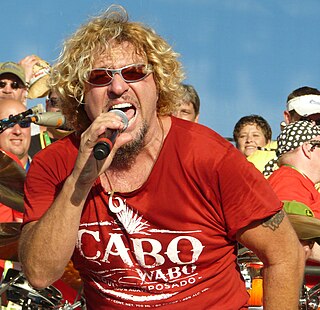
Sam Roy Hagar, also known as the Red Rocker, is an American singer, songwriter, and guitarist. He rose to prominence in the early 1970s with the hard rock band Montrose before launching a successful solo career, scoring a hit in 1984 with "I Can't Drive 55". He enjoyed further commercial success when he replaced David Lee Roth as the lead vocalist of Van Halen in 1985, but left in 1996. He returned to the band from 2003 to 2005. In 2007, Hagar was inducted into the Rock and Roll Hall of Fame as a member of Van Halen. His musical style primarily consists of hard rock and heavy metal.
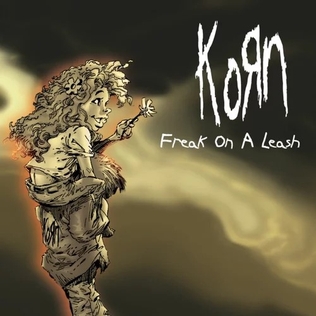
"Freak on a Leash" is a song by the American nu metal band Korn, featured on the group's 1998 studio album, Follow the Leader. After Follow the Leader's release, the song was released as a single on February 25, 1999, and since then, it has been re-released over ten times. The song uses dissonance, distortion, various guitar effects, and a heavy, aggressive style.

1965 is the sixth studio album by American rock band The Afghan Whigs. It was released on October 27, 1998, by Columbia Records.

Folk Singer is the second studio album and fourth album overall by Muddy Waters, released in January 1964 by Chess Records. The album features Waters on acoustic guitar, backed by Willie Dixon on string bass, Clifton James on drums, and Buddy Guy on acoustic guitar. It is Waters's only all-acoustic album. Numerous reissues of Folk Singer include bonus tracks from two subsequent sessions, in April 1964 and October 1964.
Tarika is a musical group from Madagascar. The group's predecessor, Tarika Sammy, formed in the 1980s, but as Tarika they debuted in 1993. At that point they had relocated to London. Their second album Son Egal was a collaboration with Senegal musicians and dealt with the 1947 Malagasy Uprising in Madagascar. Otherwise, much of Tarika's music is based on musical tradition; for example, the album D focused on dance music. Their 2001 album Soul Makassar dealt with the musical connections between Indonesia and Madagascar.
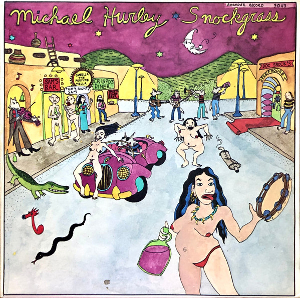
Snockgrass is a 1980 folk album by Michael Hurley. The album was released by Rounder Records, with a reissue in 1997.

Eusèbe Jaojoby, commonly known by his surname Jaojoby, is a Malagasy composer and singer of salegy, a musical style of northwestern Madagascar. Critics consider him to be one of the originators of the modern salegy style that emerged in the 1970s, and credit him with transforming the genre from an obscure regional musical tradition into one of national and international popularity. Jaojoby also contributed to the creation of two salegy subgenres, malessa and baoenjy. Jaojoby has been called the most popular singer in Madagascar and the Indian Ocean islands, and is widely referred to as the "King of Salegy". His success has earned him such honors as Artist of the Year in Madagascar for two consecutive years (1998–1999) and the role of Goodwill Ambassador for the United Nations Population Fund in 1999.

The culture of Madagascar reflects the origins of the Malagasy people in Southeast Asia, East Africa and Oceania. The influence of Arabs, Indians, British, French and Chinese settlers is also evident.
Raymond Razafimbahiny (1919–1963), also known as R.R. Majunga, was an artist from Madagascar. He was among the premier, if not the leading, bilingual (French/Malagasy) composers and pianists of his era. Additionally, he was a poet, a classically trained violinist, and a self-taught pianist. R.R. Majunga's life story and development as a composer are closely intertwined with Madagascar's birth as a nation, encompassing the colonial period, the rebellion against French rule, the attainment of independence, and the early years of independence. He tragically lost his father, who was tortured, shot, and eventually buried in a mass grave by the French colonial government due to his involvement in the resistance movement. At the time of his father's death, Raymond Razafimbahiny found himself as a young adult responsible for his family and numerous younger siblings as he ventured to the town he believed held great promise: Majunga, which is considered by many to be the heart of Madagascar. Adding further complexity to his life story is the time he spent fighting on behalf of France in the Indochina War and Algeria.
Étoile de Dakar were a leading music group of Senegal in the late 1970s and early 1980s. Youssou N'Dour was one of the singers in the band and the band was a major part of N'Dour's rise to stardom in Senegal.

Philibert Rabezoza, better known by the name Rakoto Frah, was a flautist and composer of traditional music of the central highlands of Madagascar. Born in 1923 near the capital city of Antananarivo to a poor rural family, Rakoto Frah surmounted the challenges posed by his underprivileged origins to become the most acclaimed 20th century performer of the sodina flute, one of the oldest traditional instruments on the island. Through frequent international concerts and music festival performances, he promoted the music of the highlands of Madagascar and became one of the most famous Malagasy artists, both within Madagascar and on the world music scene.
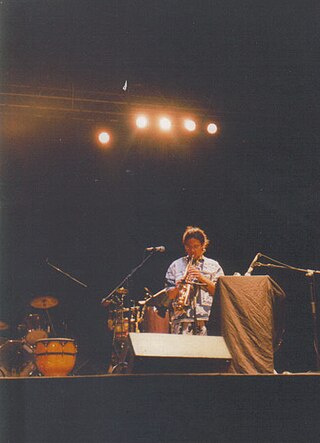
Nicolas Vatomanga Andrianaivo Rakotovao, known as Nicolas Vatomanga is a Malagasy saxophonist, flutist, bandleader and composer. His music combines elements of jazz, blues and traditional musics of Madagascar, including: the hira gasy of the Centre, the beko from the South and the salegy from the North of the Great Island.

Samoëla Rasolofoniaina, better known as Samoëla, is a Malagasy vocalist and composer of contemporary folk fusion and roots music that draws upon musical traditions throughout the island of Madagascar. He typically sings and plays acoustic guitar, accompanied by an ensemble including bass guitar, Western and traditional percussion, and backup singers. He is distinguished by his use of hainteny traditional poetry and its metaphorical language, as well as youth slang and culturally subversive direct language to critique and address sensitive social and political topics.

Mahaleo is a folk-pop band from Madagascar that is widely viewed as the most popular Malagasy group of all time. The band was founded by Dama with six of his classmates after first performing together during the rotaka student protests at their high school on 13 May 1972. Mahaleo's lyrics draw upon the indirect language of traditional hainteny and ohabolana to expose contemporary political and social issues and invite listeners to identify their own solutions.

Bambay Gueej is an album by the Senegalese musician Cheikh Lô. It was released toward the end of 1999, with an international release in 2000. Lô supported the album with a European tour.
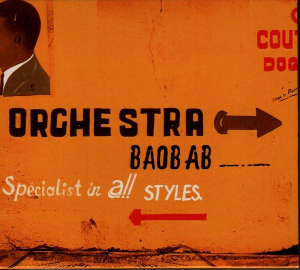
Specialist in All Styles is an album by the Senegalese band Orchestra Baobab, released in 2002. After the success of the Pirates Choice reissue, the band decided to record a reunion album. It was Orchestra Baobab's first album in 15 years. The album title was taken from a sign hanging outside a barbershop.

















